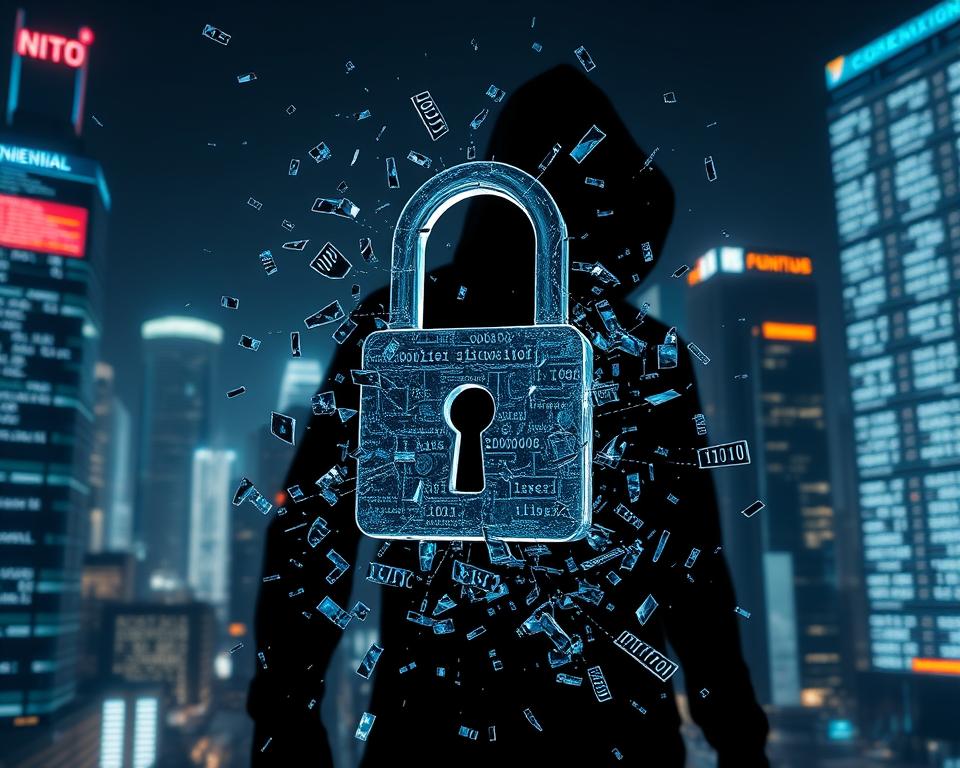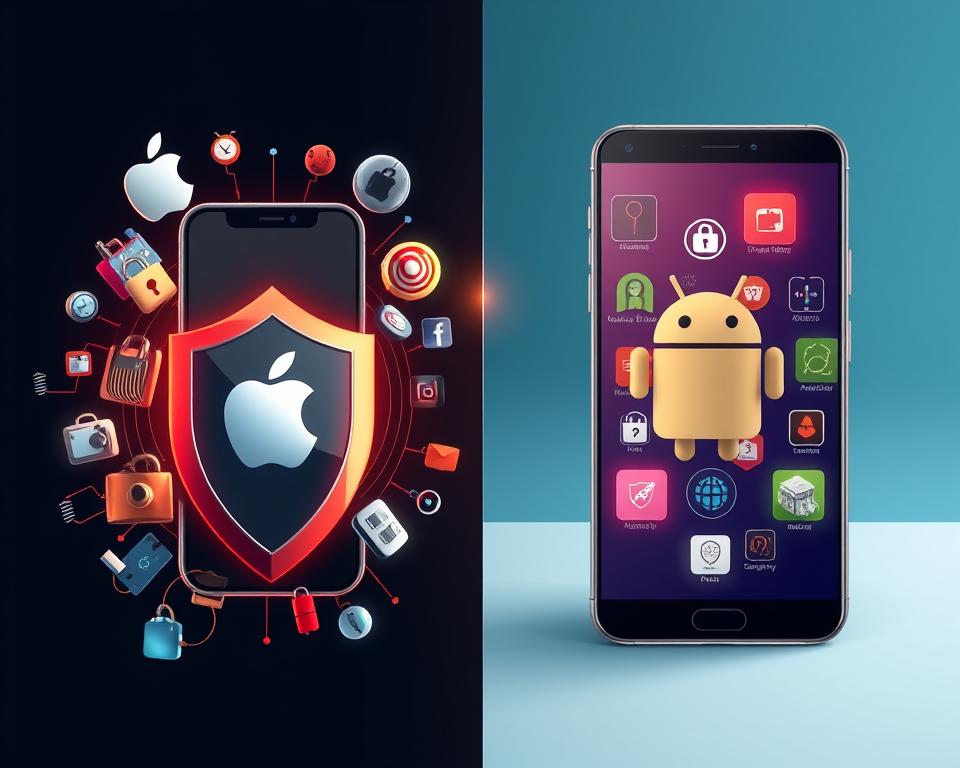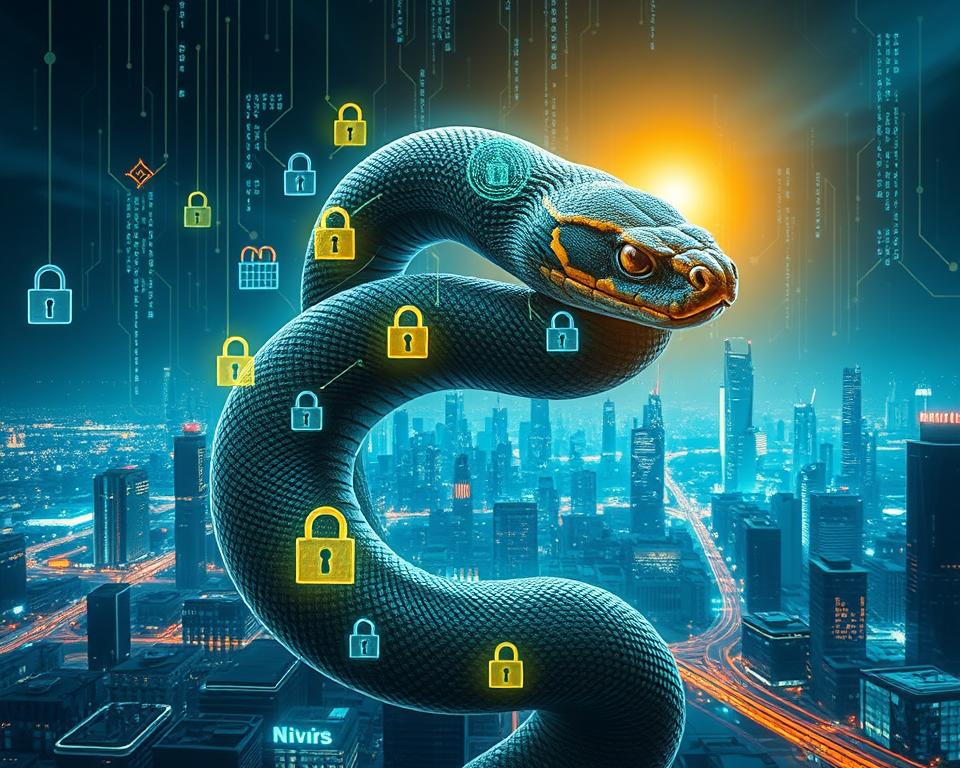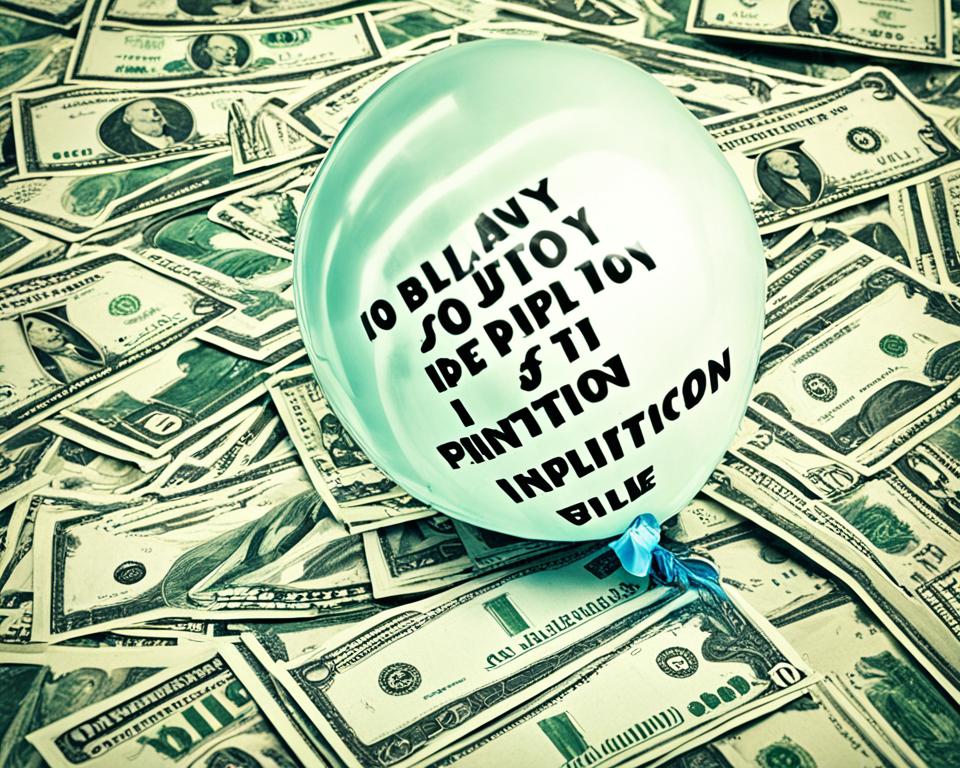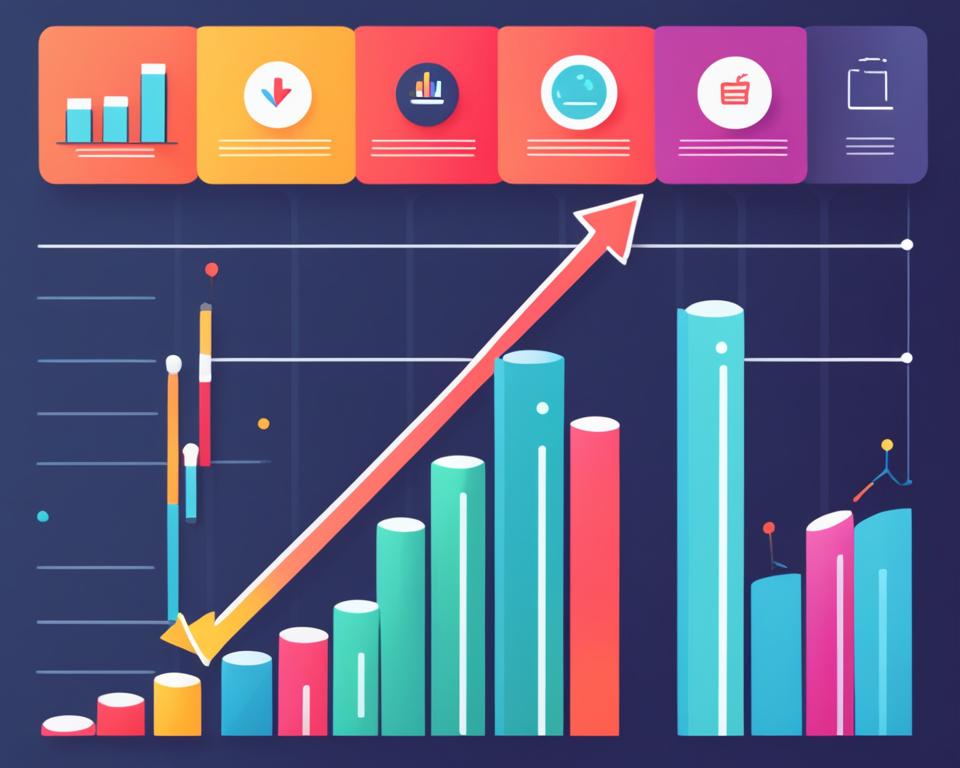In today’s digital world, data breaches and privacy scandals are all too common. They expose the personal info of millions worldwide. But which incidents were the most shocking and impactful? As we explore the top 10 privacy scandals, ask yourself: Are we safe online, or is our personal info just a click away from being stolen?

Key Takeaways
- Data breaches affecting millions of users have become alarmingly common in the digital age.
- The Yahoo hacks, Equifax breach, Facebook data scraping, and other major privacy scandals have exposed the personal information of billions of people globally.
- These incidents have led to significant consequences for both individuals and companies, highlighting the critical need for robust data protection measures.
- Understanding the impact and lessons learned from these privacy breaches is crucial in navigating the evolving cybersecurity landscape.
- The ubiquity of data breaches raises important questions about the safety and security of our personal information in the online world.
The Yahoo Hacks: A Billion-User Breach
The Yahoo data breach is one of the biggest hacks ever. It affected over 3 billion user accounts. Russian hackers broke into Yahoo’s database between 2013 and 2014. They got access to names, email addresses, phone numbers, birth dates, and more.
Yahoo first said 1 billion accounts were hit. But after Verizon bought Yahoo, they found out it was much worse. The Yahoo data breach was the largest hack in history. The hackers used many ways to get into Yahoo’s systems.
Breach Details and Aftermath
Yahoo was slow to act and didn’t tell everyone about the 2014 hack right away. This led to big problems. They were fined $35 million and had to pay out in lawsuits. Verizon also paid less for Yahoo because of the Yahoo data breach.
“The Yahoo hacks were a huge breach of trust. They showed how Russian hackers could get to billions of users’ personal info. It made the tech world wake up to the need for better security and privacy.”
The Yahoo data breach showed how important good security is. It also showed how important it is to tell people about hacks right away. The hack was a big reminder of the dangers of cyber attacks and how companies must protect their users’ data.

Equifax: A Massive Data Breach Impacting Millions
In 2017, the credit reporting Equifax faced a huge data breach. It affected about 148 million U.S. citizens and 163 million worldwide. Hackers used a weakness in Apache Struts to get into Equifax’s systems. Even though a fix was known, Equifax didn’t update its servers. This let hackers stay hidden for 76 days.
The Equifax data breach revealed personal info like Social Security numbers and addresses. This big credit reporting agency breach led to many lawsuits and fines. Equifax eventually paid the FTC $575 million to settle.
The Equifax data breach showed how important strong security is. It made everyone more aware of the need to protect personal information exposure.
| Breach Details | Aftermath |
|---|---|
|
|

“The Equifax data breach was a wake-up call for the credit reporting industry and consumers alike. It exposed the significant vulnerabilities in the system and the need for robust data security measures.”
Facebook: Data Scraping and Unauthorized Access
In 2019, a big problem was found. A security researcher found an open server with data on over 530 million Facebook users. This breach showed phone numbers, Facebook IDs, locations, email addresses, and more personal info. It was a huge leak of user data.
The database was easy to use for bad guys. They could find out users’ names and other personal stuff. This put millions of Facebook users at risk of identity theft and scams. Facebook didn’t tell users about this until August 2021, two years later. This move was heavily criticized.
Exposed User Information and Consequences
The breach showed the personal details of over half a billion users. This included:
- Phone numbers
- Facebook IDs
- Locations
- Email addresses
- Other user profile information
This big data scraping and unauthorized access has serious effects. Now, cybercriminals can easily target Facebook users. This could lead to money loss and damage to their reputation.
| Impact of the Facebook Data Breach | Consequences |
|---|---|
| Exposed personal information of over 530 million users | Increased risk of identity theft, phishing, and other cyber attacks |
| Lack of timely notification to affected users | Erosion of user trust and criticism of Facebook’s data protection practices |
| Ease of accessing users’ names and other details | Heightened vulnerability to targeted attacks and financial losses |
The Facebook data breach and unauthorized access hurt the company’s reputation. As the biggest social media site, Facebook’s failure to protect data is a big worry. It shows we need better data privacy laws and stronger security to keep people safe online.

top 10 privacy scandals: First American Financial Corporation’s Insecure Data
In 2019, First American Financial Corporation, a top real estate title insurance company, faced a big privacy scandal. A security flaw on its website let unauthorized people access sensitive customer data. This was due to an Insecure Direct Object Reference (IDOR) issue.
The breach exposed a lot of private information. This included bank account details, mortgage documents, wire transfer receipts, and even driver’s licenses. This First American Financial Corporation data leak showed how crucial strong cybersecurity is for protecting customer sensitive data.
The New York State Department of Financial Services (DFS) acted quickly. They fined the company $1 million for breaking cybersecurity laws. They also pointed out the clear insecure data exposure warning signs. This shows how important it is for companies to focus on data protection and fix Insecure Direct Object Reference issues before they get exploited.
“The First American Financial Corporation data breach was a wake-up call for the industry, highlighting the devastating consequences of overlooking even the most basic security protocols.”
This privacy scandal is a lesson for all businesses. It shows how vital it is to prevent First American Financial Corporation data leak and have strong security measures. These are needed to keep customer information safe.

Aadhaar: The World’s Largest Biometric ID System Breached
In January 2018, a big problem was found – India’s Aadhaar, the biggest biometric ID system, was hacked. Over 1.1 billion Indian people’s personal and biometric info was leaked. This included names, addresses, photos, phone numbers, emails, and even fingerprints and iris scans.
The problem was found on Indane’s website. Indane is a state-owned utility company. Their API didn’t have the right security, so hackers got in and sold the data.
Impact and Regulatory Responses
This Aadhaar data breach led to a big debate on data protection laws. People said we need stronger rules to keep the largest biometric ID system safe. The leak of personal information worried many about identity theft and financial fraud.
The Indian government then made the Aadhaar Act. It was to create a legal base for the Aadhaar program and fix privacy and security issues. But, if these regulatory responses really protect the world’s largest biometric ID system is still being talked about.

“This incident highlighted the critical importance of data protection and the need for robust security measures to safeguard sensitive biometric information entrusted to large-scale ID systems.”
MySpace: Outdated Security Leads to User Data Exposure
In the early 2000s, MySpace was a big name in social media, with over 360 million users. But, its old security ways led to a big data breach. This exposed sensitive info of users.
In June 2013, a hacker got into MySpace’s big data pool. They grabbed usernames, email addresses, and birthdays. This info was later sold online in 2016, worrying people about the MySpace data breach and user information misuse.
Before the breach, MySpace used SHA-1 to keep passwords safe. But, SHA-1 was easy to crack because it was fixed in length. Today, we use salted hash algorithms for better security.
After the breach, MySpace quickly acted. They made all stolen passwords invalid and told users to change their passwords. This was to lessen the damage from the outdated security that caused the big leak.
| Incident | Details | Impact |
|---|---|---|
| MySpace Data Breach | Hacker accessed over 360 million user accounts, including usernames, email addresses, and dates of birth. | Stolen data was later posted for sale on the dark web, raising concerns about potential misuse of user information. |
| Outdated Password Encryption | MySpace used a secure hash algorithm (SHA-1) to encrypt user passwords, a method that was easily crackable. | The password encryption vulnerability left user accounts susceptible to exploitation. |
| Remedial Action | MySpace invalidated all stolen passwords and notified affected users to reset their login credentials. | This measure aimed to mitigate the impact of the outdated security practices that had led to the massive data exposure. |
The MySpace data breach is a lesson. It shows how important it is to keep security up to date. We must always protect user privacy in the changing digital world.
Conclusion: Lessons Learned from Major Privacy Breaches
Privacy scandals show how crucial it is for companies to focus on strong data security. They must use the latest cybersecurity measures. This includes keeping software and systems updated, controlling access tightly, using top-notch encryption, and telling users fast if there’s a breach.
These big incidents prove that even big, well-known companies can get hacked. They show we all need to be more careful with our personal info. By learning from these mistakes, we can improve our privacy breach lessons, data protection best practices, and cybersecurity measures. This helps reduce the chances of our info getting into the wrong hands.
These scandals are a big warning. They tell us to pay more attention to keeping our data safe. By using strong security and teaching everyone about protecting data, we can regain trust. And we can keep the personal info we share safe from harm.
